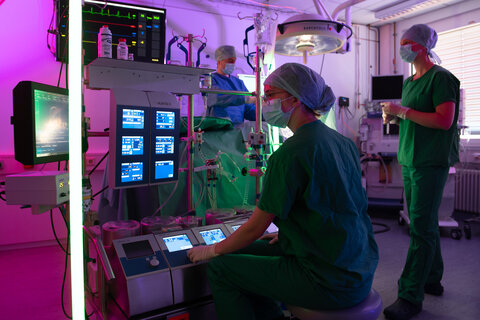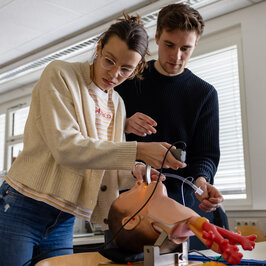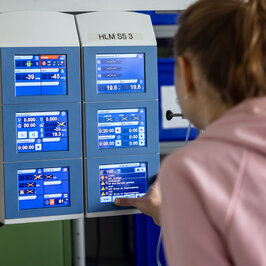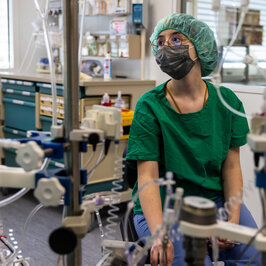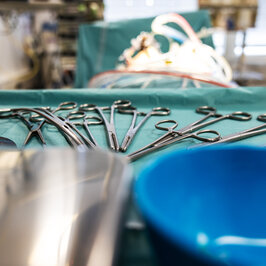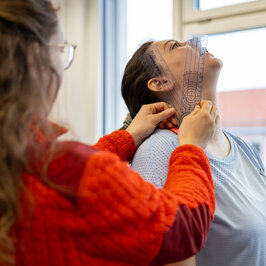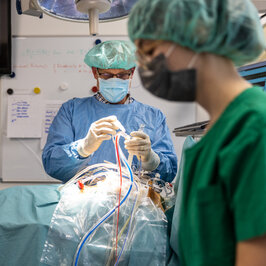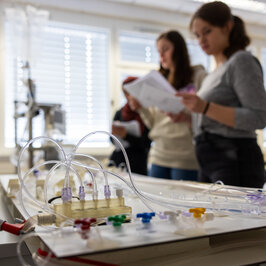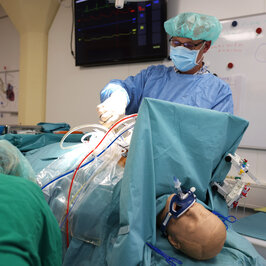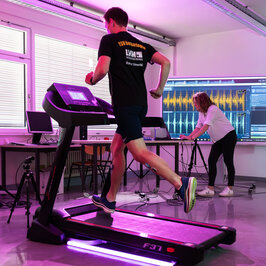Health-oriented and patient-centered
Medicine and technology are growing ever closer together. Innovative technologies are helping to treat patients better and more individually.
Minimally invasive techniques in surgery and cardiotechnology are developing rapidly, as are sports medicine technology, organ support systems, imaging techniques, computer-aided communication technologies and app-based applications. Our degree programme will prepare you to contribute to this exciting future technology!
Programme content and structure
Specialisation in biomedical technologies
This focus deals with the development of innovative procedures and devices in medical monitoring, therapy and diagnosis. You'll acquire this in-depth technical knowledge in special lectures, practical courses and in our university's own research projects.
Specialisation in surgical engineering/cardiotechnology
Heart-lung machines and organ support systems are sophisticated devices. If you choose this focus, you will be heading towards a career as a perfusionist. These engineers are the link between doctors and technology in hospitals. You'll be taught in-depth medical knowledge for this job.
Specialisation in sports medicine technology
Personalised medicine, the development of individual training equipment or supportive aids require sports medicine fundamentals and knowledge of biomechanics. This is where you're in demand as an engineer! Intelligent sensors and developments from the field of medical technology are increasingly being used in the sports, fitness and rehabilitation sectors.
Entry requirements
MKT specifics
You can work on your own exciting projects during your studies. You will be closely supervised by lecturers from the field and receive the support you need to realise your future-oriented ideas.
Whether it's a gesture-controlled robot, the further development of our simulated patient in the operating theatre or an intelligent therapy device – there are no limits to your imagination!
You might even take a big step towards the future of medical technology!
You also have the opportunity to obtain the internationally recognised EBCP (European Board of Cardiovascular Perfusion) certificate during your studies – and start your career as a perfusionist in a highly specialised medical field.
What's covered
MKT Study and Examination Regulations (SPO):
- Download file:General Bachelor SPO
- Download file:MKT SPO
- Download file:Furtwangen University Admission and Matriculation Regulations
- Download file:HFU Bachelor Selection Procedure Regulations
Module descriptions
Semester fees
Special features
Whether you would like to spend time abroad, do an internship in a clinic or in industry, would like to do research, or need info on the support of
medical technology companies or about how to fit your studies around your life – we're happy to advise you!
In the run-up to your studies, you'll have the opportunity to get a taste of everyday university life. We'll arrange an appointment for you to attend lectures and take a tour of our labs.
Dates and events
Further dates and eventsUnfortunately, there are currently no events planned that we can display here. We have compiled an overview of all planned events in the event calendar.
Your key contact
Your future is important to us. Contact us for advice.
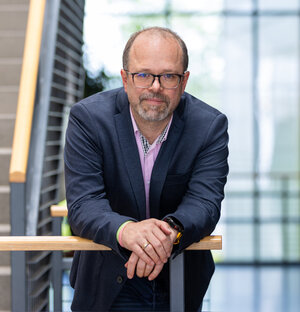
Medical Engineering - Technologies and Development Processes (BSc) (MTE) / (IMT) discontinued
Medical Engineering - Clinical Technologies (BSc) (MKT)/(MEB) discontinued
Deputy Dean of Studies: Engineering and Business Management Master (MSc) (EBM)
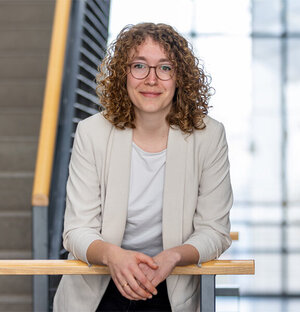
Sports medicine
